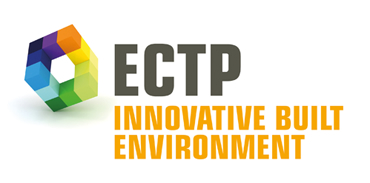
SportE2
Intelligent management system to integrate and control energy generation, and consumption for european sport and recreation buildings
Start date: 01.09.2010
Duration: 42 months
Coordinator: RINA CONSULTING
Budget: 4.7 M€
Details
The objective of the SportE2 is the development of ICT tools addressing the specific needs of sport facilities in terms of energy efficiency. Sport facilities represent a significant portion of the overall building stock and consume a disproportionately large amount of energy compared to other building types (offices, residential areas, etc.) due to their specificities.
Sports facilities are unique:
- in their energy demand profiles (timing and peaks)
- usage patterns (long periods of low use and then short periods of high use sporting event)
- comfort and ventilation requirements
- facility characteristics (e.g. swimming pools, ice rinks, indoor courts, saunas, bar areas, etc.)
- how they are owned and managed
- they can encompass large open spaces (multiple buildings, complexes, parking areas, outdoor courts and fields, etc.)
With this background, SportE2 developed a suite of integrated, modular, and scalable ICT solutions for the management of energy consumption, generation, and exchange locally and within the larger context of the smart grid/neighbourhood. The four modules are:
- SportE2 How: Smart Metering – understanding energy flows.
- SportE2 When: Integrated Control – the ability to actuate and settings
- SportE2 Why: Optimal Decision Making – intelligent and optimal operational strategies
- SportE2 Where: Multi-Facility Management tool – a portal for multi-facility managers.
The ICT solutions have been tested and validated in three Sport facilities, three pilots, characterised by a mix of indoor and outdoor facilities and different management philosophy: the first pilot is in Santa Maria de Lamas (Portugal) and it is provided of two swimming pools and two gyms; the second FIDIA, Roma, provided of two swimming pools, one volleyball indoor court, one gym and two outdoor multi-purpose courts. The local generation of energy is provided by gas boilers and a Biomass Plant. The third pilot is in Etxebarri (Spain) and is provided of two swimming pools and a multisport indoor court. The local generation of energy is provided by solar photovoltaic and solar thermal panels. These pilots have been used to identify energy saving scenarios relevant for sport facilities, which could be then replicated at the end of the project, and to evaluate the SportE2 modules in terms of benefits that could be gained by the implementation of the SportE2 solutions.
The pilots have undergone several weeks of pre-control monitoring with the support of energy audits, conducted before any ICT measures, for establishing a reference baseline and then several weeks of monitoring in different seasons with the control and optimisation measures in place.
The validation activities have demonstrated the benefits achievable thanks to the implementation of the SportE2 system in the three pilots. In Santa Maria de Lamas, the savings obtained are respectively of about 30,5% and 42,5% on electrical and thermal energy (overall savings 36,5%). On the bases of the above energy savings, the CO2 reduction obtained by electricity and thermal saving are respectively of about 30,3% and 69,5%. In FIDIA, Italy, the savings are of about 24% and 34% on electrical and thermal energy (overall savings 29%). The energy saving for the swimming pool is of about 31%, therefore SPORTE2 achieved the targeted goal.
Finally, on the basis of the above energy savings, with reference exclusively the swimming pool subsystem, the CO2 emission reduction is of about 29%, in line with the project targeted goal.
Finally in the Polideportivo Etxebarri the determined energy savings obtained during winter and spring seasons are respectively of about 46,7% and 34,3% on electrical and thermal energy with an overall CO2 emission reduction of about 35%. Furthermore, the energy savings obtained with the optimized used of solar thermal panels during the summer season are respectively of about 49% on both gas and thermal energy with an increased value of about 74% concerning the share of solar energy. The CO2 emission reduction generated by the optimized used of solar thermal panels is of about 49%.
Such figures demonstrate the project has achieved the original objective of at least a 30% of energy saving and CO2 emission reduction and are extremely useful as supporting elements to be shown to potential customers interested to our solutions.
List of achievements
The SportE2 project video can be found here.
The project results are available on CORDIS website.
Contact
Contact person: Donato Zangani
Address: RINA CONSULTING
Tel:
email: donato.zangani@rina.org
Documents
D2.4 SportE2 How module complete
D3.4 SportE2 When module complete
D5.3 Where available as a product module
D5.4 Integrated SportE2 system product complete
SportE2 Final Report
Status
Finished












